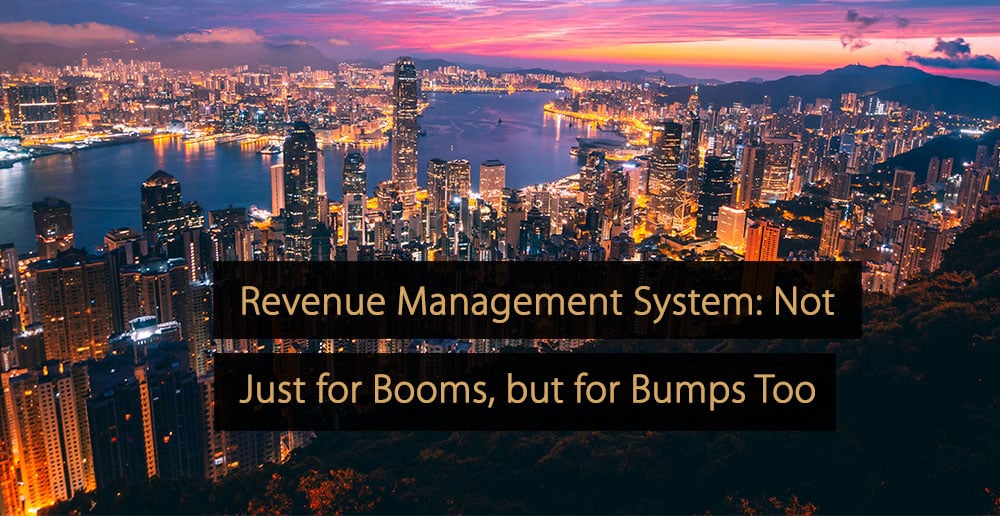
When a big event is on the horizon, expectations run high. You plan for full occupancy, increase your rates, and prepare your team. But what happens when the bookings don’t come as expected? That’s when a revenue management system becomes more than a nice-to-have. In this article, we’ll explore how a revenue management system (RMS) helps hoteliers navigate that gap between forecast and reality, using real examples from the Eurovision Song Contest 2025 in Basel and Germany’s rate-capped Euro summer.
The Real Test of RMS? When Things Don’t Go to Plan
We say it all the time: the real magic of revenue management is staying ahead of the game and being ready to adapt when the game changes at the last minute. Sure, an RMS makes good weeks look better. But when the phones stay quiet and your sunniest forecast turns cloudy, that’s when it can truly save you.
Because in tough weeks, pricing confidence is everything.
ESC 2025 in Basel: When Expectations Don’t Match Reality
Big event in town? Expectations go up. That’s exactly what happened when the Eurovision Song Contest came to Basel in May 2025. Hotels braced for a boom, but it felt more like a fizzle early in the week. Demand, especially compared to the previous week’s Swiss Biotech Days, simply didn’t come through as hoped.
Media headlines called it a disappointment. But for some hoteliers, the story was different.
At RoomPriceGenie, we looked at data from seven properties using more flexible, market-driven strategies, and the results were impressive:
- 9% average occupancy across the week
- 2% occupancy on Saturday night
- ADR comfortably above CHF 300
Here’s what made the difference:
- Shorter minimum stays
- Moderate rate adjustments based on real pickup
- Agile availability that adapted as demand shifted
- Confidence to hold steady early, then act quickly when demand picked up
Some serviced apartments and long-stay concepts stayed above 90% occupancy all week, and most properties recovered quickly from cancellations.
So, ESC week wasn’t an automatic win for all. But the potential was there for those who stayed responsive to the market with an RMS, and it paid off.
Euro 2024 in Germany: Big Expectations, Modest Reality
As the Euro Cup kicked off, hoteliers in Germany were filled with optimism. Forward bookings in cities like Cologne and Leipzig were already above 70% for key match nights by early May. Average daily rates jumped 40%, and some media outlets warned fans to brace for “eye-watering” prices. The Ifo Institute even forecasted €1 billion in additional tourism spend during the tournament.
But once the tournament began, things played out differently.
According to STR, nationwide occupancy actually dropped slightly (- 0.5 percentage points) during the peak weeks. And in a DEHOGA pulse survey, 88% of German hospitality businesses said they saw no positive effect from the tournament.
So what went wrong?
- Day-trippers dominated. Thanks to high-speed rail and cheap intercity buses, many fans skipped hotels entirely.
- Price resistance set in. With rooms priced up to 57% above average, some guests looked for cheaper alternatives or stayed home.
- Regular demand was displaced. Corporate and leisure guests avoided host cities, offsetting the fan influx.
- Weather and early exits didn’t help. Germany’s loss in the quarter-finals and stormy weather dampened extended stays and celebratory spending.
Yes, there were spikes: Berlin saw 87% occupancy and a 199% increase in ADR over the final weekend. However, the tournament fell short of the German hotel’s revenue expectations.
What You Can Learn When the Expectations Don’t Match the Reality
When expectations are high but bookings fall short, an RMS helps you adapt in real time and stay agile. Properties that relied on data, not just buzz, could:
- Shift pricing earlier by watching real pickup
- Adjust length-of-stay policies before demand drops off
- Promote shoulder nights and flexible offers to appeal to domestic fans
- Protect their share without relying on inflated rates
In short, they moved with the market, not against it.
Why RMS Matters Even More in Uncertain Times
An RMS doesn’t just help you make the most of good times. It helps you:
- React quickly when demand changes
- Hold pricing decisions based on real market data
- Avoid overcorrecting too late
- Save time so you can focus on guest experience, not spreadsheets
Whether you’re facing a soft event week or a sudden shift in demand, RMS keeps you one step ahead.
Smart Revenue Management Strategies for When Plans Go Sideways
Here’s how to make your RMS work harder when the plan doesn’t go as planned:
- Keep minimum stays short unless demand truly warrants more
- Monitor pickup early, daily, and with context
- Focus on shoulder nights, not just headline dates
- Set pacing alerts to act before things slide
- Make sure your whole team understands what you’re doing and why
Strong Results Don’t Just Come from Strong Demand
Not every major event turns into a major win. With the right revenue strategy and an RMS that helps you stay agile, you don’t have to rely on high demand to perform well. Because smart, responsive decisions can turn an uncertain week into one you’re proud of. That means less second-guessing and more confident, calm, and competitive decisions.
Free Guide: The Benefits of Revenue Management
By reading this guide, you will gain valuable insights into how revenue management impacts every department and learn how to implement pricing strategies that boost revenue, streamline operations, and improve guest experiences.
Click here to download the guide “The Benefits of Revenue Management”.
More Tips to Grow Your Business
Revfine.com is the leading knowledge platform for the hospitality and travel industry. Professionals use our insights, strategies, and actionable tips to get inspired, optimize revenue, innovate processes, and improve customer experience.
Explore expert advice on management, marketing, revenue management, operations, software, and technology in our dedicated Hotel, Hospitality, and Travel & Tourism categories.






